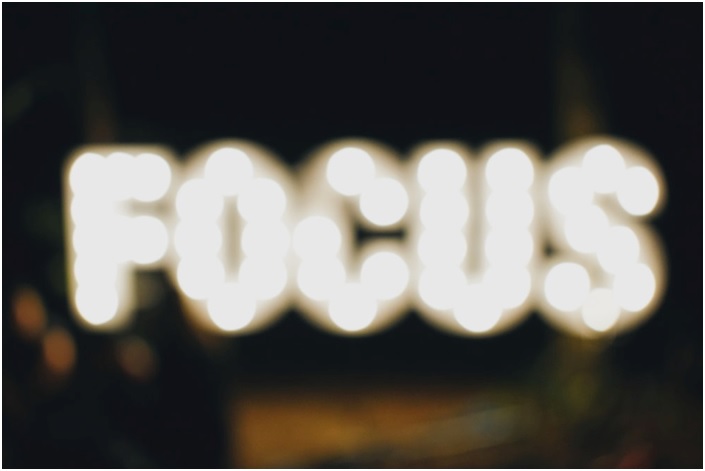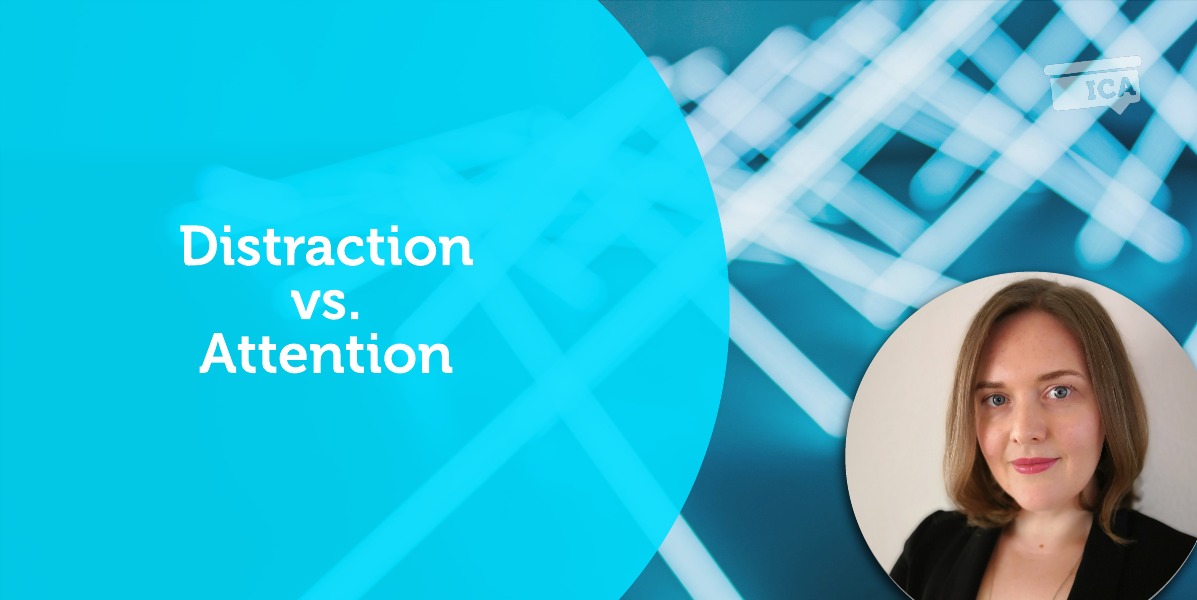A Coaching Power Tool Created by Ildiko Benko
(Executive Coach, SWITZERLAND)

…a wealth of information creates a poverty of attention. Herbert A. Simon
Distraction vs. Attention
The Global Mobile Consumer Survey conducted by Deloitte in 2017 found that cumulatively, in the U.S., we check our smartphones more than 9 billion times per day. This number went up to 14 billion already in 2018 and the tendency is still growing.[1]In this day and age where we are constantly bombarded by information, paying attention to one thing at a time has become a bit of a balancing act. Be honest to yourself, how many times have you felt urged to look at your phone or even did it instead of paying attention to the person or task in front of you? And how often have others do the same to you? How did it make you feel? It hurt, right? Well, I bet you it hurt the other person too and most probably it left you to feel guilty. How often have you felt less effective or even irritable because you got overwhelmed by the amount of information to be processed? This phenomenon has a name, it is called “attention fatigue.”
Our attention is a powerful asset in all of our relationships, private and professional, and must be managed carefully. “We have to find ways to manage our attention so that we are not making the important people in our work and home lives feel like they are not important enough to deserve our full attention…know the difference between rudeness and multitasking,” Science says, everybody has the same amount of attention and yet everybody is different when it comes to the span of it. Outstanding performers, be it, leaders or professionals, on their way to become one, are not distracted, they are focused. They know how to listen and filter out what is important. They are efficient and therefore more capable to cope with attention fatigue.[2]
Daniel Goleman argues in his studies, that attention or focus is a “foundational skill for emotional and social intelligence. Without it, we are distracted, directionless, and disconnected from the world around us. This has deep implications for leadership. Indeed, the ability to listen, and pay attention meaningfully is critical to nearly every metric that matters in the workplace.”[3]
He distinguishes different types of attention:
Concentration requires selecting a clear, single point of focus at a time and resisting the pull of all else. To concentrate, as Goleman says, “we must sift through an onslaught of irrelevancies to determine what’s important” which requires real cognitive effort and control. But as we know, a sharp focus on goals is not the only kind of attention leaders need. Creativity and innovation, for instance, or to empathize and understand others demand more open and relaxed attention. The secret ingredient to success, therefore, is to know what kind of focus to deploy in what situation and how to get it.
This is where an enhanced level of self-awareness and self-management is crucial: monitoring ourselves lets us know whether our mode of attention suits the needs of a given situation and know our limits. While this means we can be assured in our performance when we are functioning within these limitations, it also indicates for us when it’s time to rely on colleagues for the best results.
Coaching Application
Attention is a skill, and this is very good news, because if it is a skill, then it can be learned or enhanced, consequently teaching or coaching attention skills is both possible and needed. It should be taught at school, actually, but it is not. So, what can we do? Given that we are all busy, the best way would be to start with small, daily “micro-practices”, such as mindfulness meditation practices e.g. a breathing exercise which can be easily incorporated into our routines and will not cause much disruption our daily lives. All you need to do is block a few minutes in your calendar and set up a daily reminder. A few minutes per day would already help to strengthen our focus which “creates emotional ease and deeper relationships.”[4]Mindfulness exercises are great to enhance our self-awareness and to improve our ability to notice where our attention is going, for example, to recognize we are getting anxious about something, and to take steps to proactively renew our focus. Self-awareness is a key domain of EI and lets us keep our mind in the state best suited for the task at hand.
Why is this so important? “It matters because being aware of ourselves, others, and the wider world goes offline when we are distracted. With the onslaught of stimulation from devices, we need to learn to notice when we are distracted and intentionally remind ourselves to show up and focus.”[5] It is not just important in our private lives but also in our professional ones. Companies must create a working environment that promotes the cultivation of focus to stay successful, and not just for leaders. Leaders of these companies can actively support their employees by creating practices within the workplace that encourage mindful use of devices, resources, and mindful listening. For example, having people agree to not look at cell phones during meetings, banning lunch at the desk practices, introducing micro-breaks to allow for brief breathing space meditation or some small exercises, or setting guidelines on work emails after hours and weekends would all help reduce distraction and cultivate focus.
As Simone Weil once said, “attention is the rarest and purest form of generosity” and therefore we all must strive to give and get as much as we can from it.
References
Goleman, Daniel: “Focus: The Hidden Driver of Excellence,” HarperCollins Epub Edition, 2013
Goleman, Daniel: Pay Attention to Attention (viewed May 20, 2020)
Petry, Ann Flanagan: Why Focus is a Foundational Skill for Emotional & Social Intelligence (viewed on May 20, 2020)
https://www.keystepmedia.com/why-focus-is-foundational/
Sagor, Mark J: A Wealth of Information Creates a Poverty of Attention (viewed on May 20, 2020)
https://compeap.com/a-wealth-of-information-creates-a-poverty-of-attention/
[1]https://www2.deloitte.com/global/en/blog/global-trends-in-tmt/2019/deloittes-2019-global-mobile-consumer-survey.html
[2]https://compeap.com/a-wealth-of-information-creates-a-poverty-of-attention/
[4]https://www.keystepmedia.com/why-focus-is-foundational/
[5]https://www.keystepmedia.com/why-focus-is-foundational/
